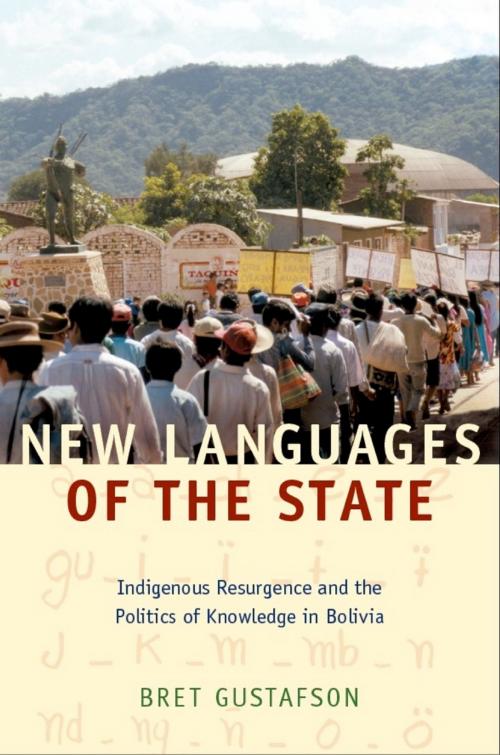New Languages of the State
Indigenous Resurgence and the Politics of Knowledge in Bolivia
Nonfiction, History, Americas, South America, Social & Cultural Studies, Social Science, Cultural Studies, Native American Studies, Anthropology| Author: | Bret Gustafson, K. Tsianina Lomawaima, Florencia E. Mallon, Alcida Rita Ramos, Joanne Rappaport | ISBN: | 9780822391173 |
| Publisher: | Duke University Press | Publication: | July 10, 2009 |
| Imprint: | Duke University Press Books | Language: | English |
| Author: | Bret Gustafson, K. Tsianina Lomawaima, Florencia E. Mallon, Alcida Rita Ramos, Joanne Rappaport |
| ISBN: | 9780822391173 |
| Publisher: | Duke University Press |
| Publication: | July 10, 2009 |
| Imprint: | Duke University Press Books |
| Language: | English |
During the mid-1990s, a bilingual intercultural education initiative was launched to promote the introduction of indigenous languages alongside Spanish in public elementary schools in Bolivia’s indigenous regions. Bret Gustafson spent fourteen years studying and working in southeastern Bolivia with the Guarani, who were at the vanguard of the movement for bilingual education. Drawing on his collaborative work with indigenous organizations and bilingual-education activists as well as more traditional ethnographic research, Gustafson traces two decades of indigenous resurgence and education politics in Bolivia, from the 1980s through the election of Evo Morales in 2005. Bilingual education was a component of education reform linked to foreign-aid development mandates, and foreign aid workers figure in New Languages of the State, as do teachers and their unions, transnational intellectual networks, and assertive indigenous political and intellectual movements across the Andes.
Gustafson shows that bilingual education is an issue that extends far beyond the classroom. Public schools are at the center of a broader battle over territory, power, and knowledge as indigenous movements across Latin America actively defend their languages and knowledge systems. In attempting to decolonize nation-states, the indigenous movements are challenging deep-rooted colonial racism and neoliberal reforms intended to mold public education to serve the market. Meanwhile, market reformers nominally embrace cultural pluralism while implementing political and economic policies that exacerbate inequality. Juxtaposing Guarani life, language, and activism with intimate portraits of reform politics among academics, bureaucrats, and others in and beyond La Paz, Gustafson illuminates the issues, strategic dilemmas, and imperfect alliances behind bilingual intercultural education.
During the mid-1990s, a bilingual intercultural education initiative was launched to promote the introduction of indigenous languages alongside Spanish in public elementary schools in Bolivia’s indigenous regions. Bret Gustafson spent fourteen years studying and working in southeastern Bolivia with the Guarani, who were at the vanguard of the movement for bilingual education. Drawing on his collaborative work with indigenous organizations and bilingual-education activists as well as more traditional ethnographic research, Gustafson traces two decades of indigenous resurgence and education politics in Bolivia, from the 1980s through the election of Evo Morales in 2005. Bilingual education was a component of education reform linked to foreign-aid development mandates, and foreign aid workers figure in New Languages of the State, as do teachers and their unions, transnational intellectual networks, and assertive indigenous political and intellectual movements across the Andes.
Gustafson shows that bilingual education is an issue that extends far beyond the classroom. Public schools are at the center of a broader battle over territory, power, and knowledge as indigenous movements across Latin America actively defend their languages and knowledge systems. In attempting to decolonize nation-states, the indigenous movements are challenging deep-rooted colonial racism and neoliberal reforms intended to mold public education to serve the market. Meanwhile, market reformers nominally embrace cultural pluralism while implementing political and economic policies that exacerbate inequality. Juxtaposing Guarani life, language, and activism with intimate portraits of reform politics among academics, bureaucrats, and others in and beyond La Paz, Gustafson illuminates the issues, strategic dilemmas, and imperfect alliances behind bilingual intercultural education.















